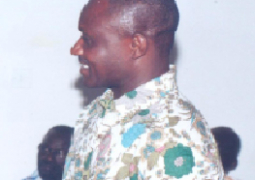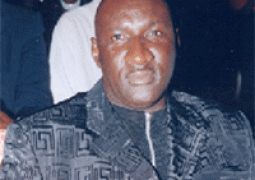
Halifa
Sallah, the spokesperson of the coalition government, has told the media at a
press conference that President Adama Barrow desires to begin with the process
of electoral reform before the National Assembly election with all the election
stakeholders, including the political parties.
He
added that reform and amendment will be effected on the Election Amendment Act
of 20 July 2015, which under section 43 increased the deposit for Presidential
aspirants from D10,000 to D500,000; National Assembly aspirants from D5,000 to
D50,000; Mayors from D2,500 to D50,000; and for the councillors from D1,200 to
D10, 000.
He
said the president desires to begin electoral reform before the National
Assembly election, as he had instructed that the consultation begins with the
political parties, the inter-party committee, and the Attorney General and
Minister of Justice.
“Such
draconian provisions will ultimately be subjected to review by all
stakeholders, and a bill will be prepared to be submitted to the National
Assembly for enactment,” he said.
The
government is now working very hard to put the institutions to work so that the
vacuum that has been created by the impasse will be overcomed, and all those
who contributed to the national development will be able to play their part, he
added.
On
appointment of the remaining seven ministers, Mr Sallah said the transition has
phases, and the most anticipated by most people is the completion of the
appointment of the Cabinet ministers.
He
said the first phase of the appointments dealt with the fundamental basis of
forming a coalition which arose as a collaboration of the political parties and
one independent political aspirant, which has required the president to
consider the nomination from those parties and stakeholders.
He
said the second phase deals with the ministries that are left to be filled,
which include the Ministry of Health and Social Welfare, Ministry of
Information, Communication and Infrastructure, Ministry of Petroleum and
Energy, Ministry of Higher Education, Research, Science and Technology,
Ministry for Basic and Secondary Education and Ministry of Transportation,
Works and Infrastructure.
According
to the government spokesperson, the Ministry of Petroleum and Energy are
separated under the current budget, but it is the desire of the President to
put them together.
He
said the President has been making consultations and would have caused the
swearing-in of these ministers by this week.
The
press conference was held to ensure transparency in the vetting process, which
the President is engaged in.
As of now, he has come to almost a conclusion
regarding the persons to be appointed for the Ministry of Information,
Communication and Infrastructure, Ministry of Basic and Secondary Education and
Ministry of Transport, Works, Infrastructure.
Mr
Sallah, who is said to be the coordinator of the Think-Tank Committee of the
government, emphasised that the President is still working on the other
ministries that are not mentioned among the stated three.
He
said section 72 of the Constitution instructs that he entrusts the
responsibility of ministries to persons with requisite professional qualifications
and experience.
“So
many pieces of advice are coming from different quarters, and people are
sending their curriculum vitae (CVs).”
It
was also important for people to understand that under section 76 of the
Constitution, the executive power is vested in the President to make such
appointments, continued Sallah.
He
said ministers are the advisers of the president, and they are collectively
responsible for the advice they give to the President, as well as responsible
for that advice as far as the National Assembly is concerned.
The
President also has the desire to appoint people as special advisers to him, and
according to Sallah, President Barrow is also working on that mandate so that
he would be able to capture the whole team of experience and professionalism
that is required to run a government in an efficient and effective manner.
However,
he emphasised that a strong government would need a vibrant National Assembly
to provide checks and balances.
He
said also that every successful government needs good advisers for better
functioning.
Read Other Articles In Article (Archive)
Youth Sent to Mile II for Theft
May 20, 2009, 8:01 AM




